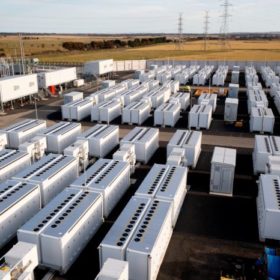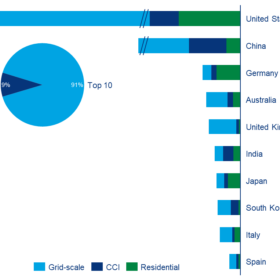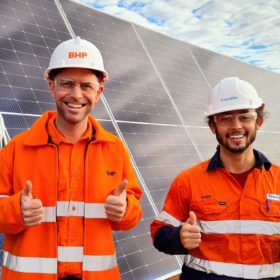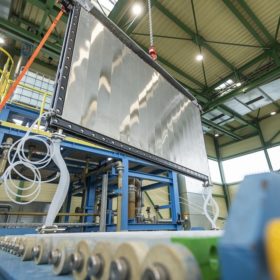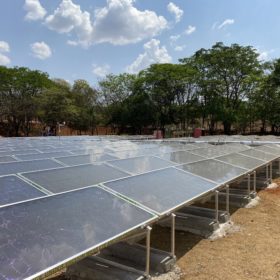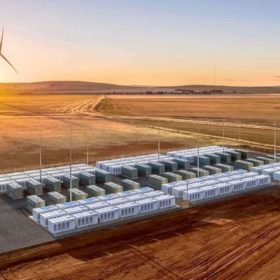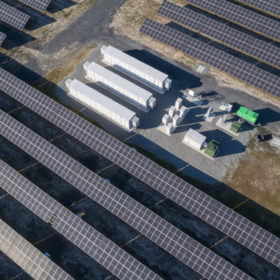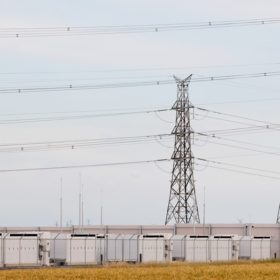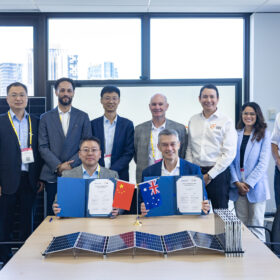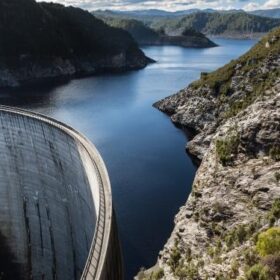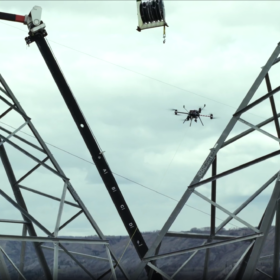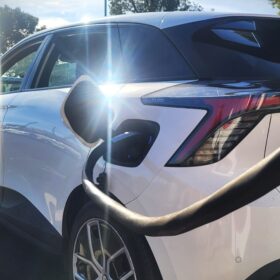Rechargeable silicon redox battery for renewable energy storage
Israeli researchers have developed a device that combines a reversible Si anode with halide cathodes and uses hybrid electrolytes to enable cell recharging. In the proposed system configuration, silicon is dissolved during the battery discharge process, and upon charging, elemental silicon is deposited.
Big week for Neoen, Australia’s big battery daddy
French company Neoen has seen its storage revenue “more than tripled” as a result of its recently commissioned Victorian Big Battery coupled with Australia’s energy crisis. In other news, the company signed a 10 year power offtake agreement with Flow Power for its “flagship” Goyder Renewables Zone project in South Australia.
New residential lithium-ion battery from China
Chinese manufacturer Bslbatt has unveiled an upgraded version of its residential battery. The device has a storage capacity ranging from 5.12 to 12.8 kWh and is reportedly able to provide steady operation for up to 6,000 charge cycles.
Australia ranks 4th in ‘staggering’ global storage markets
Wood Mackenzie places Australia fourth on its list of the globe’s top 10 storage markets, coming in just behind Germany, with the US and China unsurprisingly topping the list. The analyst expects the world’s cumulative storage deployments to reach 500 GW by 2031, according to its Global Energy Storage Outlook released today.
BHP begins shift to solar to power WA mining operation
International mining giant BHP has pushed forward with its first large-scale off-grid renewable energy project, installing the first solar PV panels at a 10.7 MW solar farm that will help power the company’s estimated $1 billion Nickel West mining operation in regional Western Australia.
Construction begins on world’s largest integrated green hydrogen, ammonia plant
In other news, German energy company Uniper said it will test a new salt cavern built for hydrogen storage, while Serbia and Hungary signed a memorandum of understanding to collaborate on renewable hydrogen.
Start-up unveils solar thermal panel for large-scale applications
The panel has an absorption area of 1.96 m2 and a weight of 27 kg per square metre. According to the manufacturer – Swiss start-up TVP Solar – it may be a real booster for thermal output, by combining it with photovoltaics and heat pumps to provide enhanced output per square meter, in particular for low-temperature applications such as district heating.
Hornsdale big battery begins providing inertia grid services at scale in world first
South Australia’s 150 MW / 193.5 Hornsdale Power Reserve, more commonly known as the Tesla Big Battery, will now provide inertia services to Australia’s National Electricity Market after securing approval from AEMO. Neoen says it is the first big battery in the world to deliver the service at such a scale.
Five things to consider in designing and commissioning high performance solar-plus-storage projects
No two projects are alike, and sharing the lessons learned from working on these highly complex systems can help accelerate the deployment of energy storage with essential clean energy assets.
‘Not valued clearly at present’: ARENA-backed study looks into how to better incentivise storage investment
Melbourne’s Monash University will conduct a $1.18 million study into alternative market designs which better support energy storage technologies and drive clearer investment signals.

